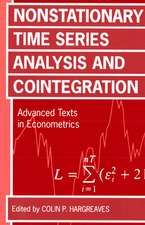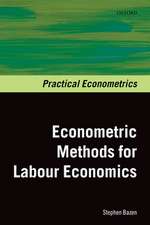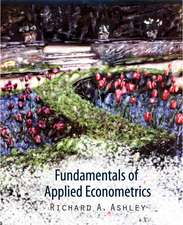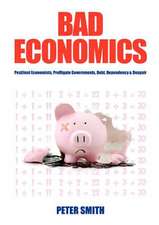Cooperative Sourcing: Simulation Studies and Empirical Data on Outsourcing Coalitions in the Banking Industry
Autor Daniel Beimborn Cuvânt înainte de Prof. Dr. Wolfgang Königen Limba Engleză Paperback – 26 iun 2008
Preț: 397.38 lei
Nou
Puncte Express: 596
Preț estimativ în valută:
76.04€ • 79.55$ • 63.17£
76.04€ • 79.55$ • 63.17£
Carte tipărită la comandă
Livrare economică 03-17 aprilie
Preluare comenzi: 021 569.72.76
Specificații
ISBN-13: 9783835009462
ISBN-10: 383500946X
Pagini: 486
Ilustrații: XXVII, 459 p.
Dimensiuni: 148 x 210 x 28 mm
Greutate: 0.64 kg
Ediția:2008
Editura: Gabler Verlag
Colecția Gabler Verlag
Locul publicării:Wiesbaden, Germany
ISBN-10: 383500946X
Pagini: 486
Ilustrații: XXVII, 459 p.
Dimensiuni: 148 x 210 x 28 mm
Greutate: 0.64 kg
Ediția:2008
Editura: Gabler Verlag
Colecția Gabler Verlag
Locul publicării:Wiesbaden, Germany
Public țintă
ResearchCuprins
Theoretical Foundation and Related Research.- Cooperative Sourcing in the Banking Industry.- Developing a Formal Model for Cooperative Sourcing.- Analytical and Simulative Studies.- Conclusion.
Notă biografică
Dr. Daniel Beimborn promovierte bei Prof. Dr. Wolfgang König am Institut für Wirtschaftsinformatik an der Universität Frankfurt am Main. Er ist als Wissenschaftlicher Assistent von Prof. Dr. Tim Weitzel an der Universität Bamberg tätig.
Textul de pe ultima copertă
More and more banks are deciding to merge business activities like payment processing or loans administration by founding joint transaction banks or credit factories. But under which circumstances will banks decide to outsource certain activities? What are the relevant drivers and inhibitors? What is the role of externalities and how can stable coalitions be established? What are the resulting market structure effects of cooperative sourcing activities?
Based on the integration of relevant economic and organizational theories, Daniel Beimborn develops a formal model of cooperative sourcing. The model captures the different drivers and inhibitors like economies of scale, scope and skill, transaction costs, strategic constraints etc. and forms the basis for both game-theoretical analyses and agent-based simulations. Simulations help to handle the numerical complexity and allow for compound analyses of the causes and effects of cooperative sourcing. Empirical data from two large-scale surveys and case studies in the German credit business are used in order to feed the simulation model and to validate the results.
This book is essential reading for researchers and students in the fields of business and information systems. It is also of interest to executives in the area of information systems and outsourcing.
Its originality, its attention to detail, its level of sophistication, its comprehensiveness, its coherence, and its richness makes this an excellent example of what the IS field needs far more of: applied research which ties together the best of what academics can offer with sound practical results.
Prof. Dr. Dr. h. c. Rudy Hirschheim
Baton Rouge, September 8, 2007
Based on the integration of relevant economic and organizational theories, Daniel Beimborn develops a formal model of cooperative sourcing. The model captures the different drivers and inhibitors like economies of scale, scope and skill, transaction costs, strategic constraints etc. and forms the basis for both game-theoretical analyses and agent-based simulations. Simulations help to handle the numerical complexity and allow for compound analyses of the causes and effects of cooperative sourcing. Empirical data from two large-scale surveys and case studies in the German credit business are used in order to feed the simulation model and to validate the results.
This book is essential reading for researchers and students in the fields of business and information systems. It is also of interest to executives in the area of information systems and outsourcing.
Its originality, its attention to detail, its level of sophistication, its comprehensiveness, its coherence, and its richness makes this an excellent example of what the IS field needs far more of: applied research which ties together the best of what academics can offer with sound practical results.
Prof. Dr. Dr. h. c. Rudy Hirschheim
Baton Rouge, September 8, 2007












